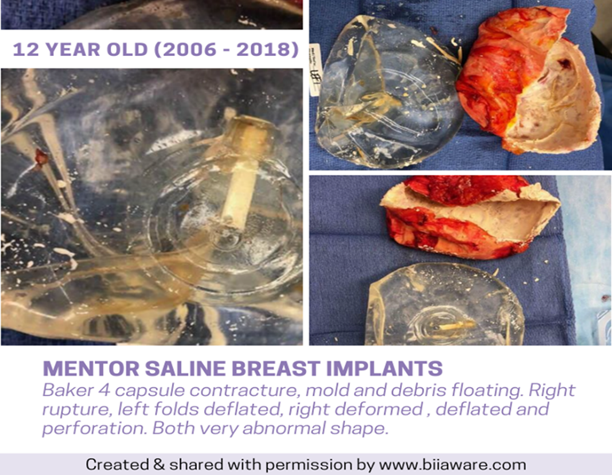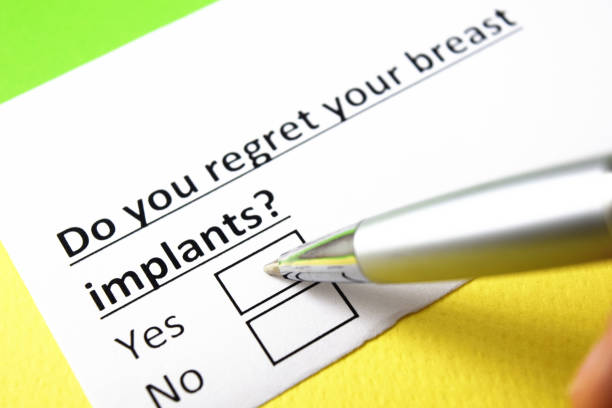
In America “The Bigger the Better” seems to be the motto behind most of our consumables; houses, cars, food portions, and unsurprisingly, breasts. America is leading the world in the number of people who have undergone breast augmentation (usually implants). Despite the numerous health consequences associated with implants (cancer, lymphoma, rupture, inhibition of breast feeding, infection and scar tissue build up), in 2018 approximately 320,000 Americans had breast implant surgery. Adolescents under 18 years of age (off label use allowable with parental consent) accounted for approximately 2% of the procedures. Breast augmentation requires regular examinations of your breasts’ health and to evaluate the safety of your implants. They tendency to downplay the seriousness of this surgery and its associated need for lifelong maintenance have left many people blindsided by preventable health conditions, some with long-term consequences.
Studies have shown that breast implants can help boost self-esteem, body image, and sexual satisfaction and these are cited as the most common reasons why women choose breast surgery. America’s high breast cancer rates are also a driver behind America’s high breast surgery numbers. Breast reconstruction and implants are common after mastectomies. Approximately 1 in 8 U.S. women (about 12%) will develop invasive breast cancer over the course of her lifetime. A recent report by Research Dive says the global breast implant market is set to grow 10.3% and is projected to garner a revenue of $4.9 billion from 2019 to 2026. It is important that consumers do their own research and understand the health risks involved with breast implants when deciding if the commitment to breast implants is right for them.
Implants as Medical Devices
Some breast implants get recalled by the FDA. As a medical product, they are subject to all the potential problems of any other medical device. Up to 10% of breast implants will rupture and the risk associated with this varies based on the type of implant. Rupture rates increase over time. According to the US FDA website “breast Implants are not considered lifetime devices.” If you currently have breast implants speak to your doctor to see if they need to be replaced and how frequently.
Overseas Plastic Surgery
 Surgery, even voluntary, cosmetic surgery, comes with potential risks (botched outcomes, infections, anesthesia dangers). Research shows that overseas travel for low-cost cosmetic procedures carries an increased risk of negative outcomes for patients.
Surgery, even voluntary, cosmetic surgery, comes with potential risks (botched outcomes, infections, anesthesia dangers). Research shows that overseas travel for low-cost cosmetic procedures carries an increased risk of negative outcomes for patients.
Cosmetic surgery products or devices used in other countries may not have been tested, proven safe and effective, or been approved by the U.S. Food and Drug Administration (FDA). Other countries may not have regulations.
Doctors have a bell curve too…
When selecting a plastic surgeon for breast augmentation, cost can’t be the only factor. Doctors who perform this surgery vary greatly in technique and skill level. Ask to speak to past patients to hear about their experiences: pain after surgery, infection occurrence, numbing and sensitivity, aesthetics, ability to breast feed afterwards, side effects and need to replace implants. Also, this is often considered a cosmetic surgery and not reimbursable by insurance. Doctors who perform this surgery have a vested financial interest in minimizing the risks and complications.
Long-Term Consequences
 Capsular Contraction is when your body forms a “capsule” of scar tissue around the implant. The body recognizes the implants as a foreign object and creates a barrier of scar tissue around it. Scar tissue does build up over time and can cause irregularities including lumps, hard spots, and lack of sensation. Breast augmentation is not intended to be a once-in-a-lifetime surgery as both implants and breast tissue will change over time.
Capsular Contraction is when your body forms a “capsule” of scar tissue around the implant. The body recognizes the implants as a foreign object and creates a barrier of scar tissue around it. Scar tissue does build up over time and can cause irregularities including lumps, hard spots, and lack of sensation. Breast augmentation is not intended to be a once-in-a-lifetime surgery as both implants and breast tissue will change over time.- Even when there is no rupture, there is a cluster of symptoms referred to as “Breast Implant Illness”. Symptoms such as fatigue, memory loss, rash, “brain fog,” and joint pain may be associated with breast implants. These symptoms and the causes are poorly understood. In some cases, removal of the breast implants is the only way to achieve symptom abatement.
- Breast implants can and do rupture during routine mammogram screenings. Some screening centers will ask patients to sign a waiver acknowledging the risk of breast implant leakage/rupture that may occur during a mammogram.
- The U.S. Food and Drug Administration (FDA) currently recommends regular follow-up magnetic resonance imaging (MRI) scans for women with silicone breast implants. MRI implant imaging obtain information regarding implant integrity (any signs of leak or rupture), evaluation of post-implantation complications, and to screen breast tissues for disease, specifically breast cancer.
If a ruptured silicone implant is not removed, the silicone could cause pain from inflammation and/or the development of scar tissue (i.e. capsular contracture). Many insurance companies will pay for the removal of a ruptured silicone breast implant to avoid costly medical complications.
Regrets I have had a few
 There are very few formal studies that assess patient satisfaction with breast implants after 20 years, but anecdotal data repeatedly state that individuals were not aware of the need to change and update devices. Many women are surprised by the maintenance implants require and opt for having implants removed to avoid related health issues, inconveniences, and costs. Breast implant surgery involves the implantation of a medical device, and as a result, there is the potential for negative health consequences.
There are very few formal studies that assess patient satisfaction with breast implants after 20 years, but anecdotal data repeatedly state that individuals were not aware of the need to change and update devices. Many women are surprised by the maintenance implants require and opt for having implants removed to avoid related health issues, inconveniences, and costs. Breast implant surgery involves the implantation of a medical device, and as a result, there is the potential for negative health consequences.
Out-Plants: Decision to Remove
Here are the most common reasons for surgical removal of breast implants
- Personal preference. People might be interested in a more natural look, sports are easier without the larger breasts, and some report not liking the attention they receive with larger breasts.
- To address a complication (capsular contracture or implant rupture).
- Not wanting the health risk associated with implants
- Medical necessity, ex. undergoing breast cancer treatment
Implants are a commitment that require regular maintenance and create some additional challenges. Being informed ahead of time about the possible issues will help people make a better decision.
The most current product safety information and other updates regarding breast implants can be found on the FDA website.




I have been a nurse since I was 18 years old, and I had implants to correct a congenital defect in my twenties. NO ONE ever told me that they had a shelf life. I was shocked when I found out that I was supposed to be having routine monitoring. Thank God insurance covered the removal because of a complication (as I aged one of the implants moved and became painful). My health has definitely improved since removal!!! Thanks for sharing this awesome article. No one talks about this kind of stuff!!